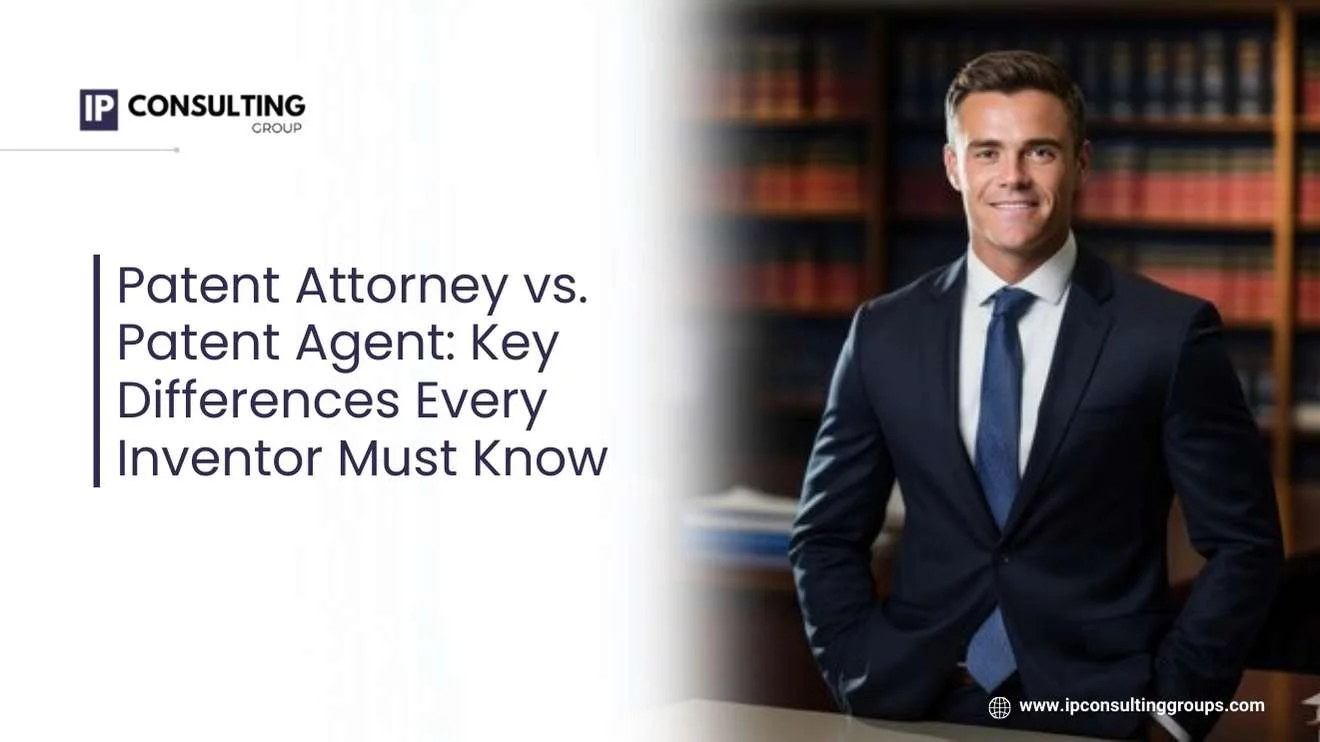Patent Attorney vs. Patent Agent: Key Differences Every Inventor Must Know
If you’re an innovator or entrepreneur, chances are you’ve already heard the terms “patent attorney” and “patent agent.” At first, they sound like interchangeable roles, but in reality, the distinction is critical for protecting your invention. Choosing between a patent attorney and a patent agent can affect not only your patent application process but also your overall intellectual property strategy.
To help you decide who’s right for you, let’s break this down in a friendly, story-like format while exploring the key differences between a patent attorney and patent agent.
1. Who is a Patent Attorney?
Imagine this: You’ve just sketched your brilliant idea for a new medical device on a napkin during lunch. Excited, you want to protect it before anyone else tries to copy it. This is where a patent attorney comes in.
A patent attorney is a licensed lawyer who has passed both the state bar exam and the U.S. Patent and Trademark Office (USPTO) registration exam. That means they can not only draft and file patent applications but also represent you in legal disputes, licensing negotiations, or litigation involving your patent.
With patent attorney services for inventors, you get a professional who can bridge the technical and legal worlds — turning your napkin sketch into enforceable intellectual property protection.
2. Who is a Patent Agent?
Now let’s say you’ve developed a new app algorithm and you’re confident it has commercial potential. You don’t have a big budget for legal battles right now, but you want to get a patent filed quickly and professionally. In this case, you might work with a patent agent.
A patent agent is not a lawyer but is licensed by the USPTO to prepare, file, and prosecute patent applications. They are often scientists, engineers, or technologists who understand your invention from a technical standpoint.
However, here’s the key takeaway in the patent agent vs patent attorney discussion: a patent agent cannot represent you in court or handle trademark issues. Their expertise lies solely in patent filing and prosecution.
3. The Legal Advantage of a Patent Attorney
Think of it this way: filing a patent is like building a house. A patent agent can be the skilled builder who gets the structure standing strong. But if a neighbor comes along to challenge your property line, you’ll need a lawyer to defend it.
That’s the difference between patent attorney and patent agent — legal representation. Patent attorneys can:
Draft contracts and licensing agreements
Handle infringement cases in federal courts
Advise on broader intellectual property strategies
This legal advantage can make all the difference when your invention becomes valuable and competitors start circling.
4. Cost Considerations for Inventors
Many inventors worry about costs. And that’s fair — protecting an invention is an investment. Naturally, you might ask, “how much does a patent attorney cost?”
The answer varies depending on complexity, but patent attorneys typically charge more than patent agents because they provide both technical and legal expertise. If your invention is straightforward and you’re simply seeking a patent filing, a patent agent may be a cost-effective option. But if you anticipate licensing deals, global filings, or potential disputes, the higher cost of a patent attorney can be well worth it.
5. When to Choose a Patent Agent
For many first-time inventors or early-stage founders, budget is tight. That’s where a patent agent for startups becomes valuable.
Patent agents can help startups:
File patent applications affordably
Conduct prior art searches
Provide technical accuracy in drafting
They can be a great first step for securing IP protection while you prepare for larger legal battles down the road.
6. When to Choose a Patent Attorney
If you’re ready to bring your product to market, seek investors, or license your invention to bigger companies, you’ll want the best patent attorney for inventors on your side.
Patent attorneys provide comprehensive protection — from filing applications to negotiating royalties to enforcing your rights in court. Their legal background ensures that your invention isn’t just patented, but also strategically protected as a business asset.
7. Global Protection Matters
In today’s world, many innovations aren’t limited by borders. If you’re building something groundbreaking, you may need international patent attorney services to protect your idea beyond the U.S.
Patent attorneys can coordinate with foreign associates, ensuring your invention is safeguarded in key global markets. Patent agents, by contrast, are limited to U.S. filings.
8. Which One Do You Need?
At the end of the day, choosing between a patent attorney and a patent agent comes down to your invention’s stage, your goals, and your budget. If you need only filing help, a patent agent can be a solid choice. But if your invention is going places and you anticipate business, licensing, or legal complexities, a patent attorney is your best ally.
Final Thoughts
Securing a patent is more than filling out paperwork — it’s about safeguarding your innovation, building business value, and staying ahead of competitors. Whether you start with a patent agent or move directly to a patent attorney, what matters is making the right choice for your invention’s future.
At IP Consulting Group, we believe every idea deserves world-class protection. To safeguard your innovation, protect your rights, and prepare for market success, work with our expert team.
👉 Speak to our patent attorney today to protect your invention.

